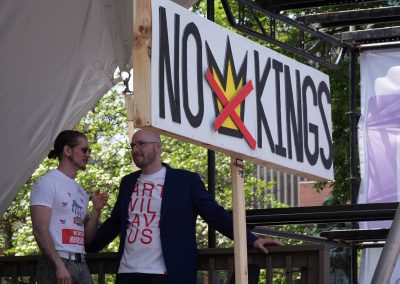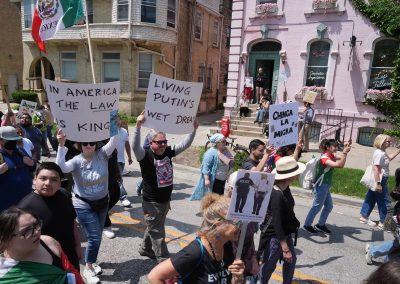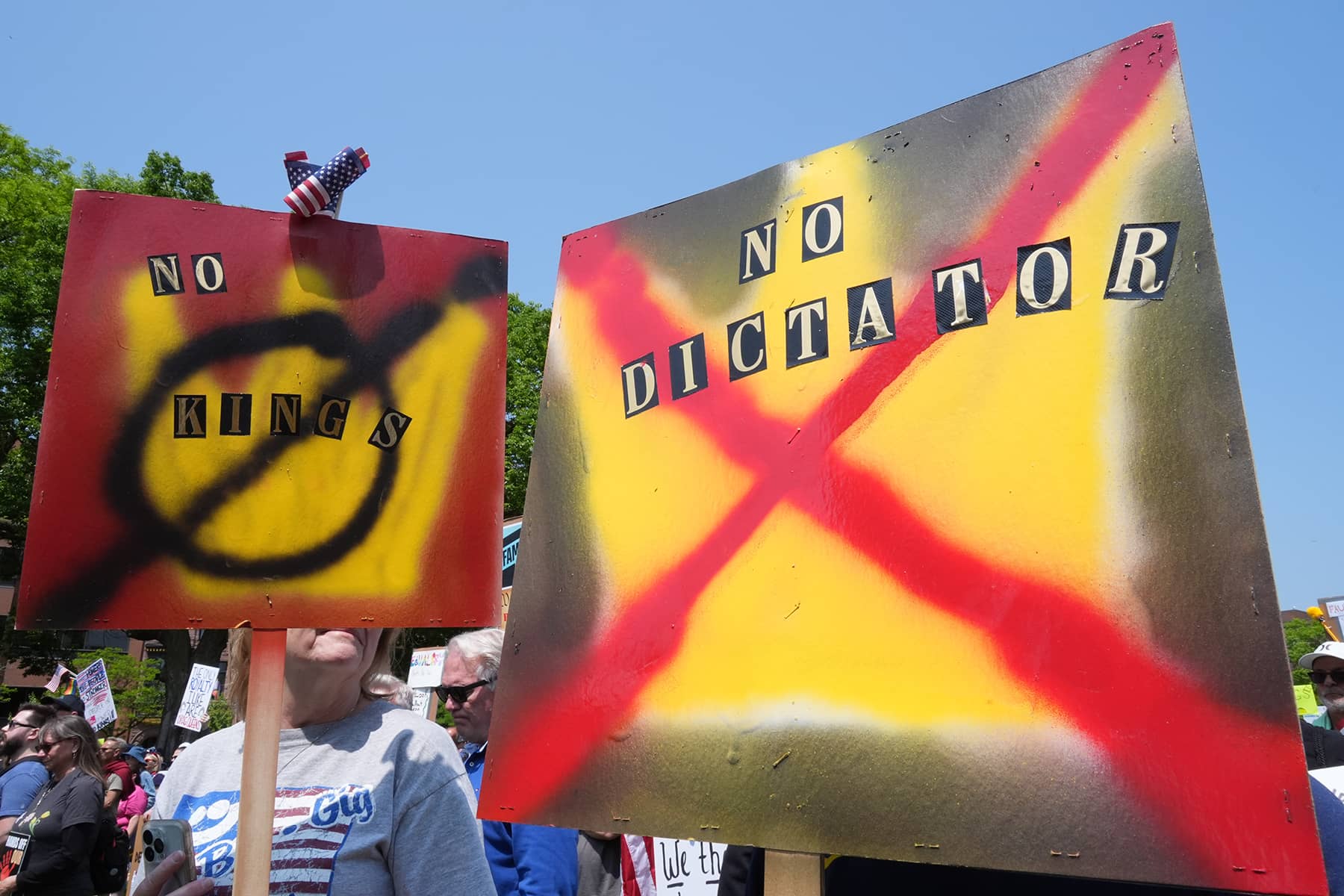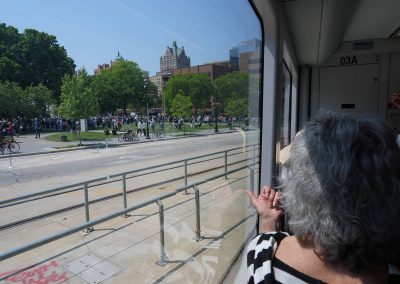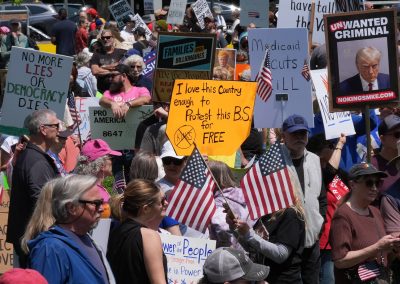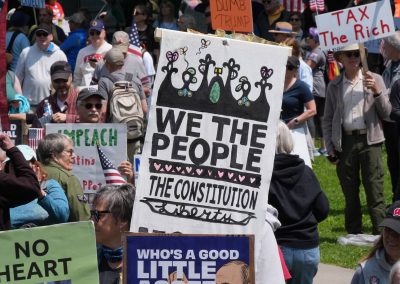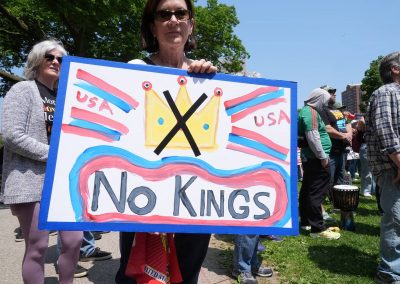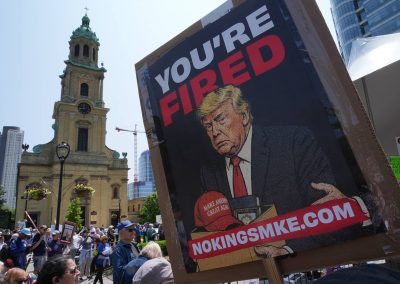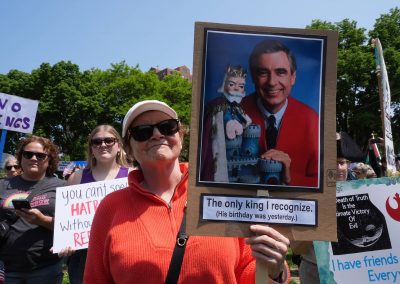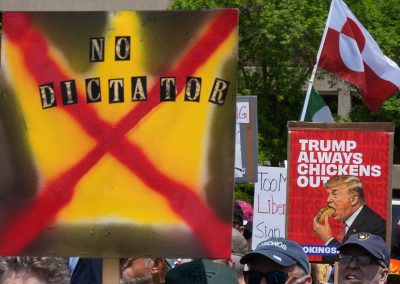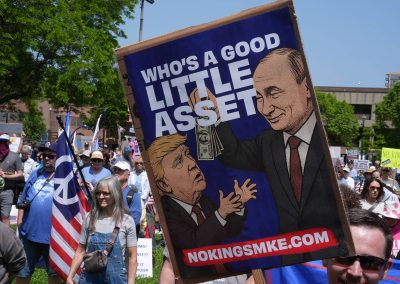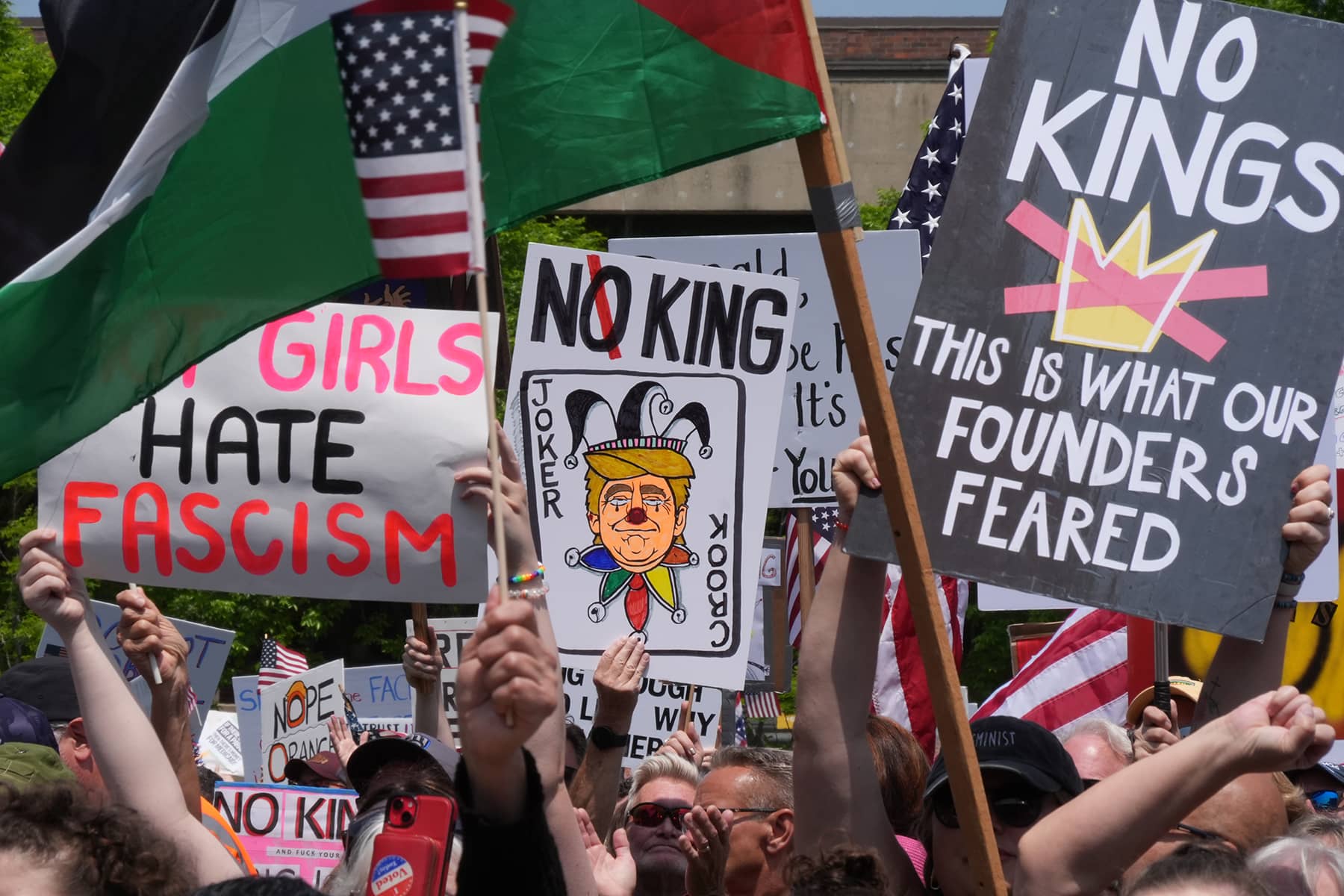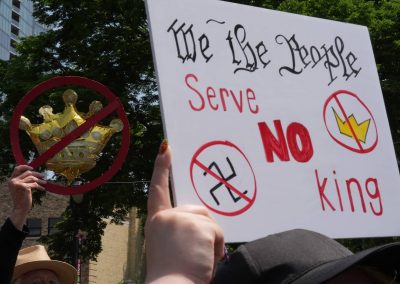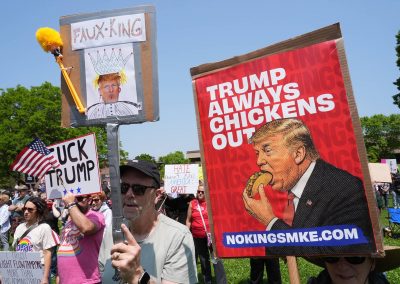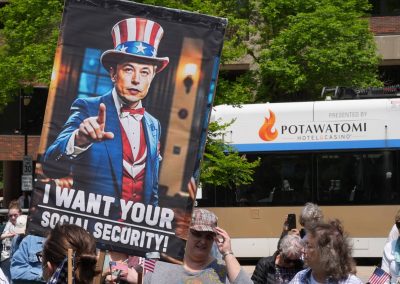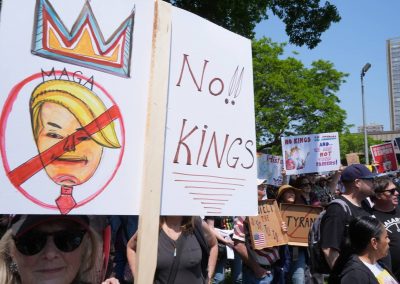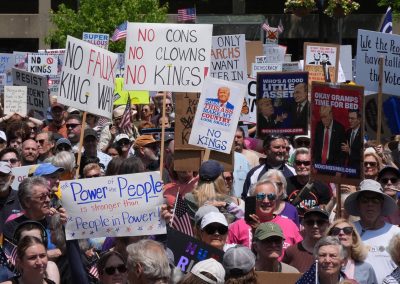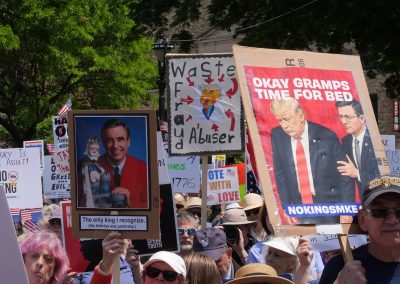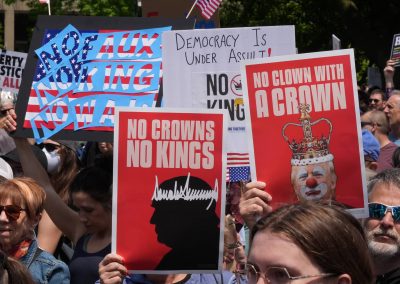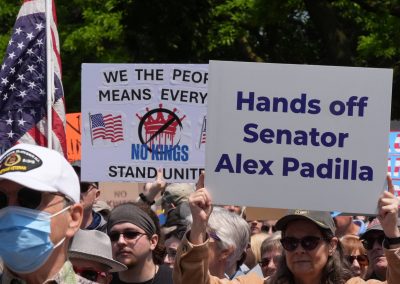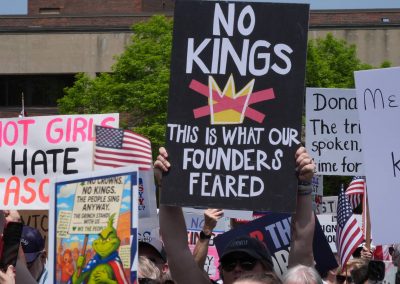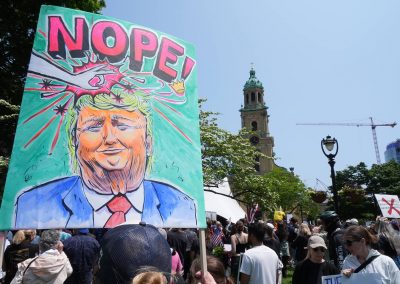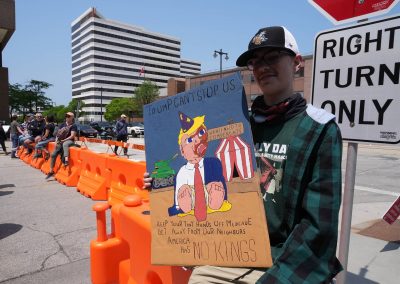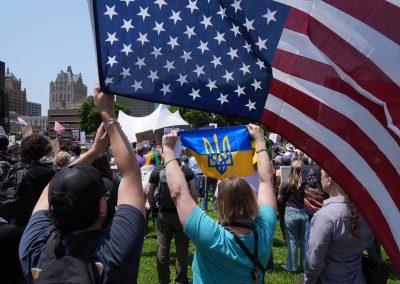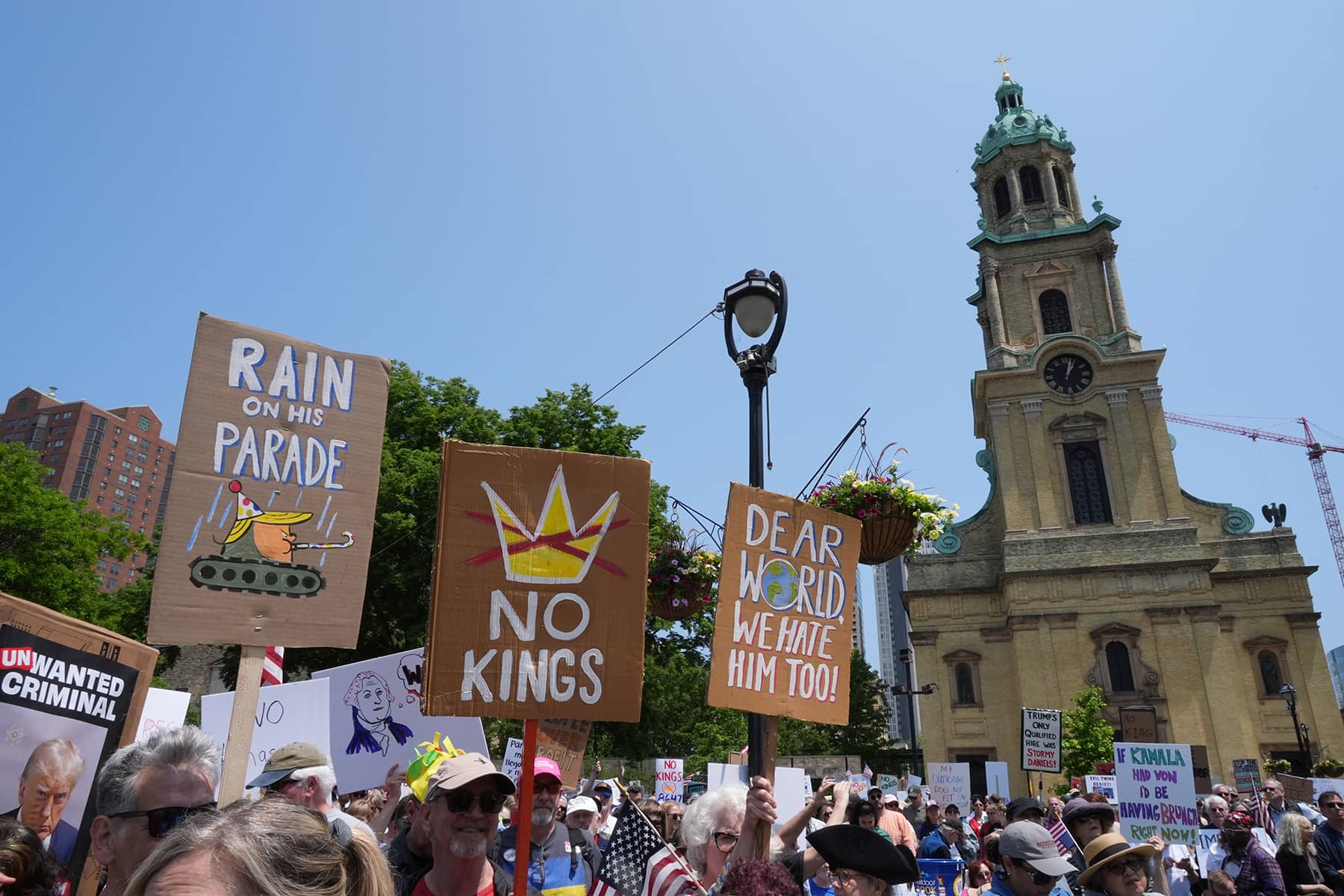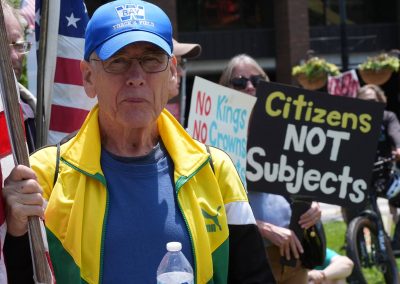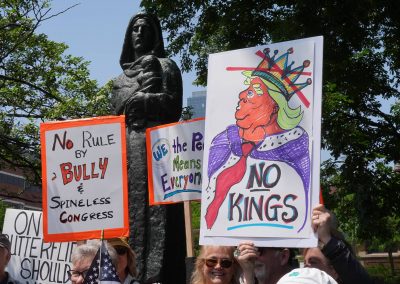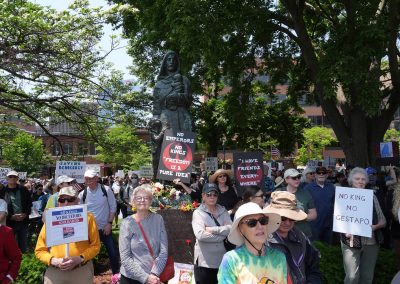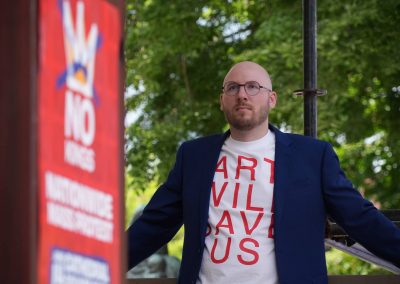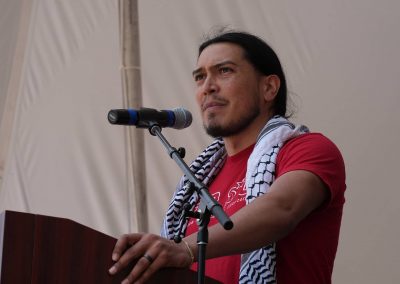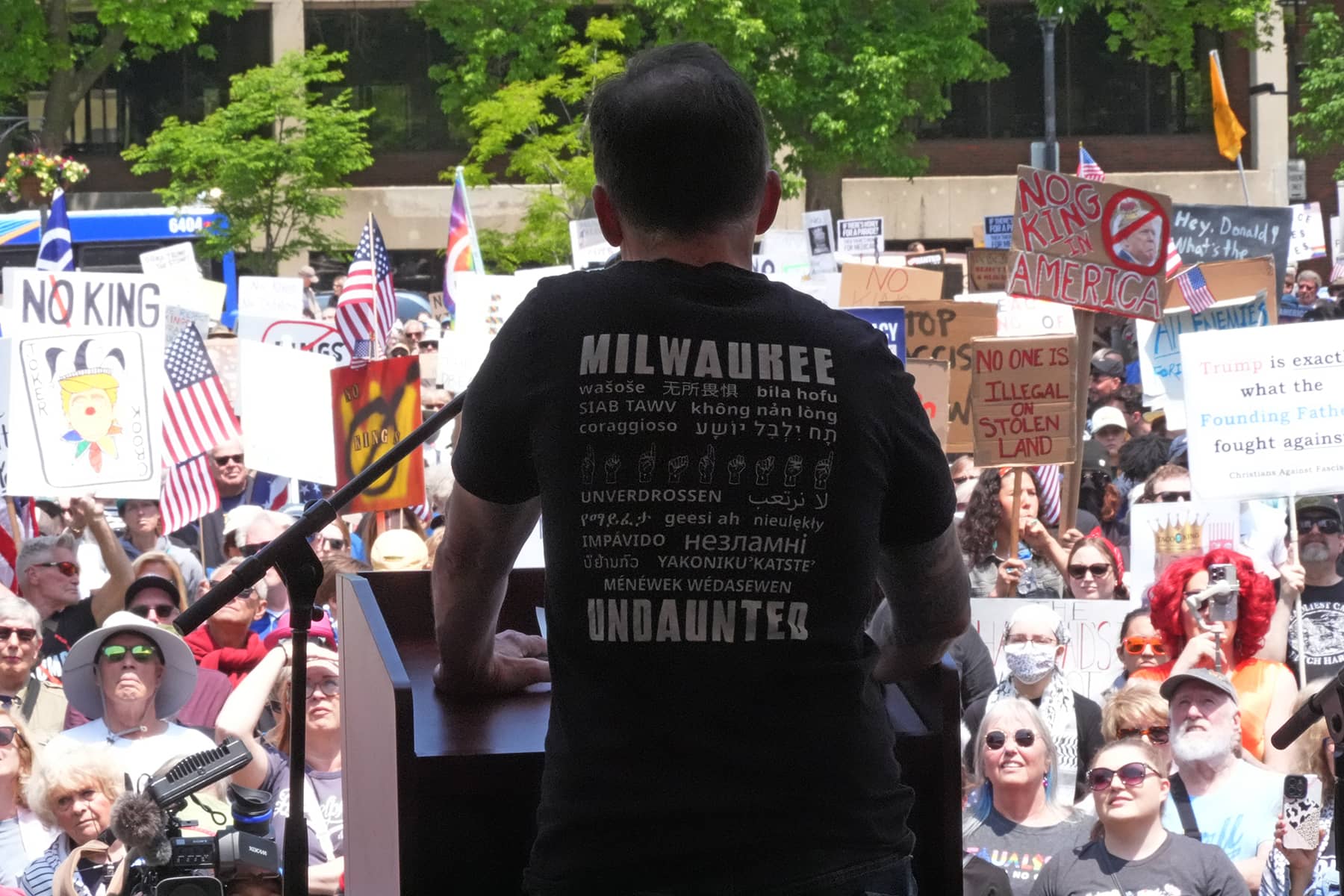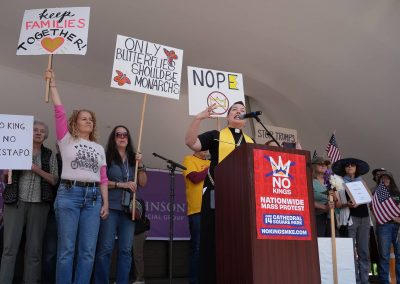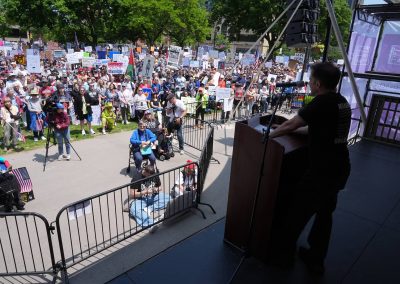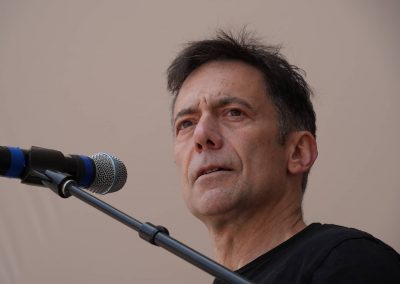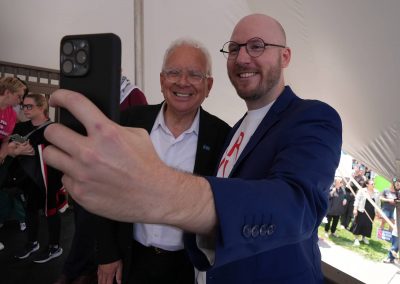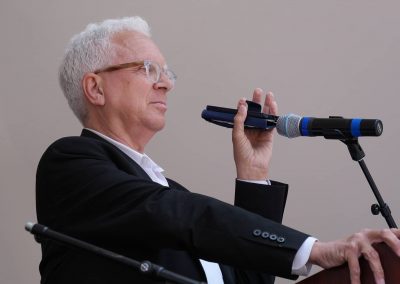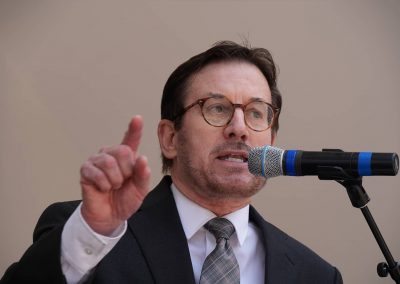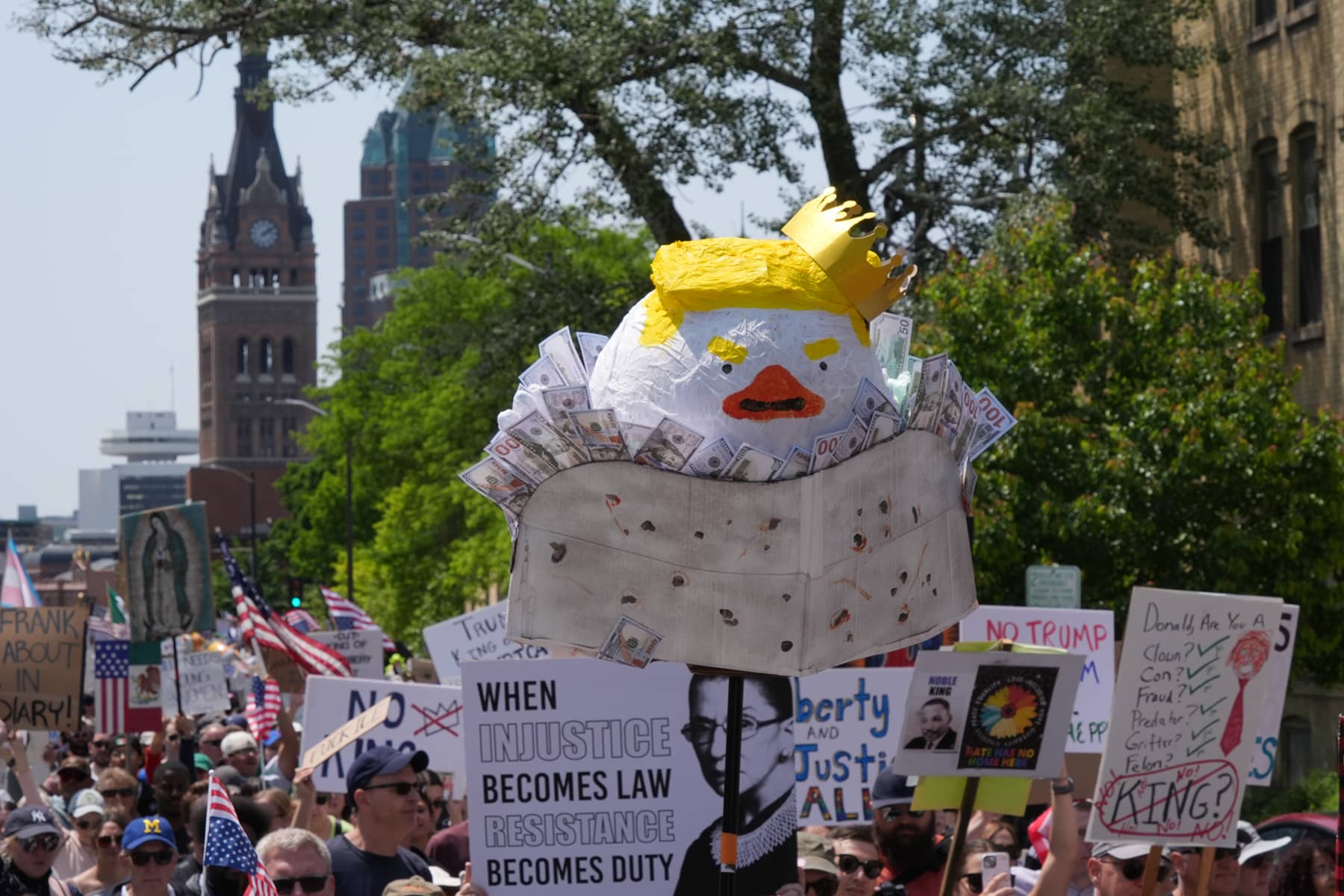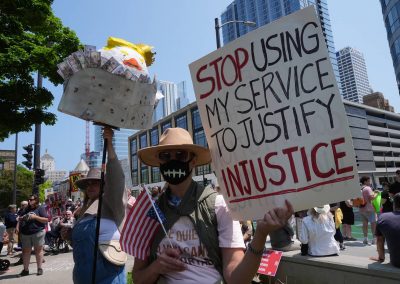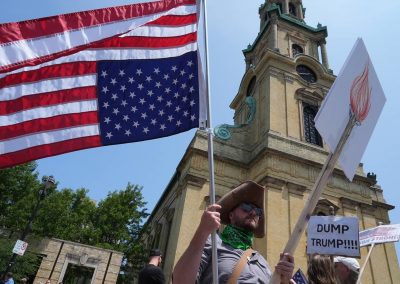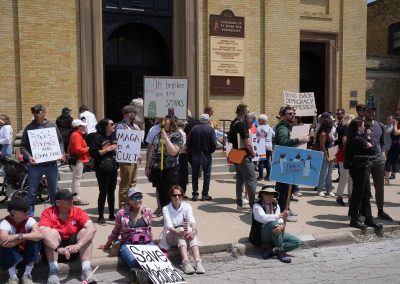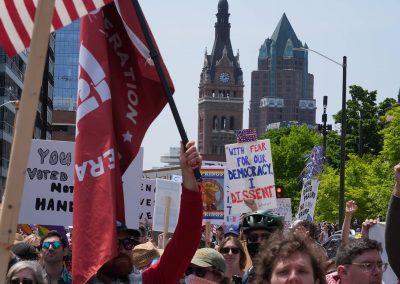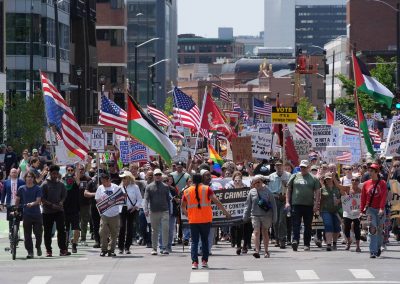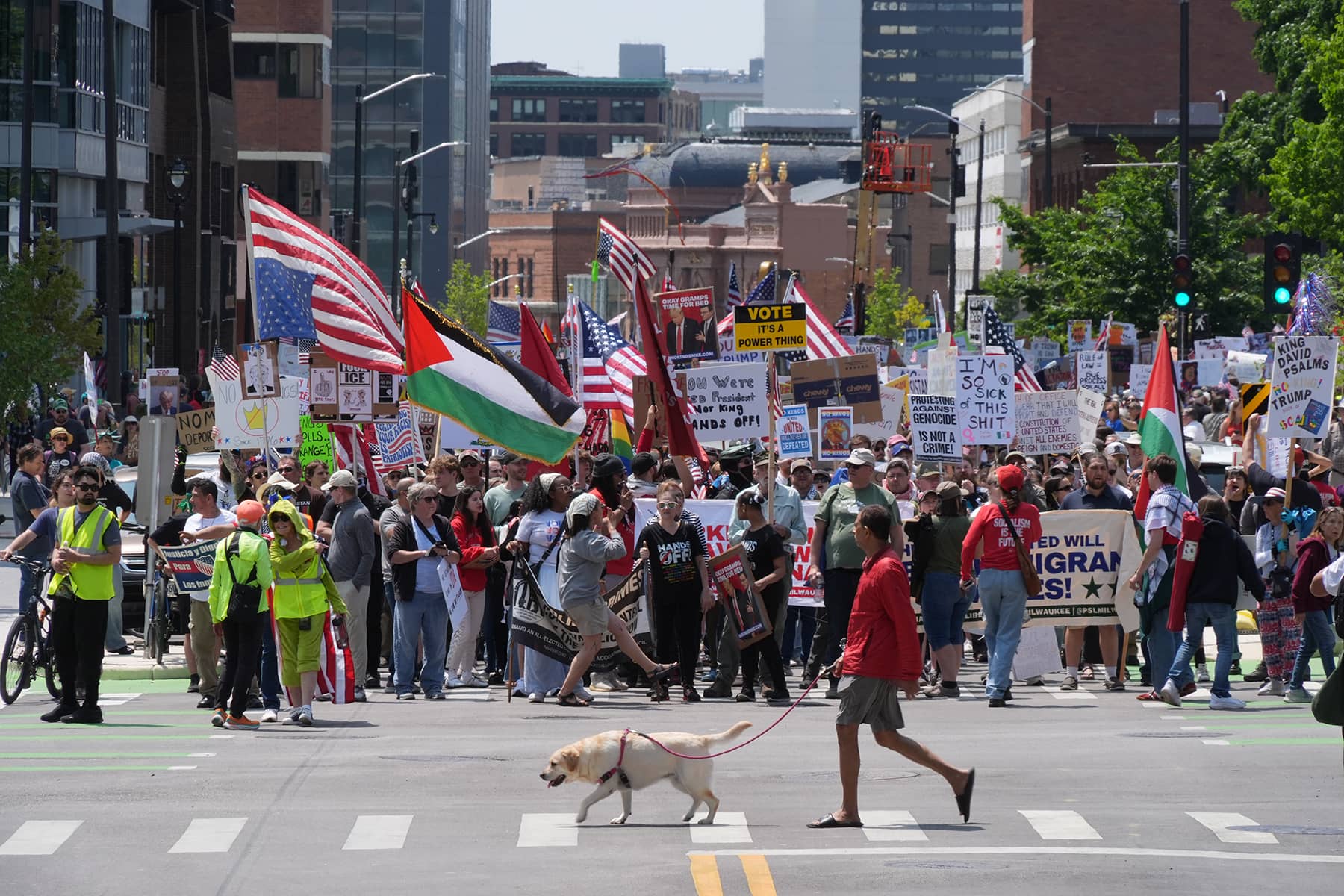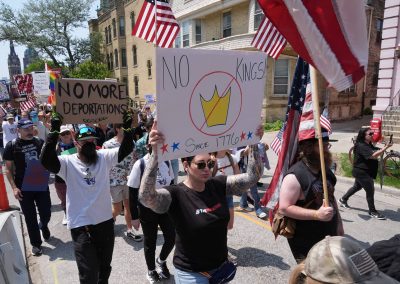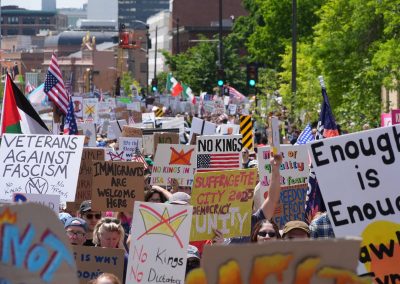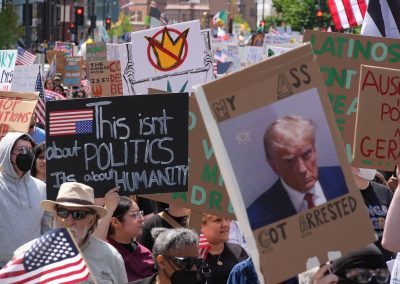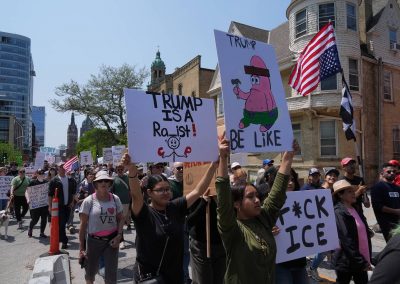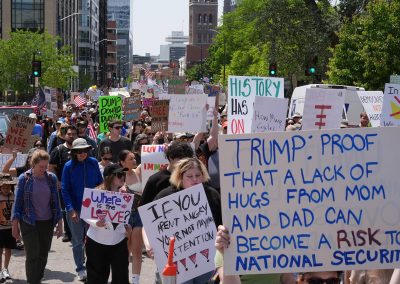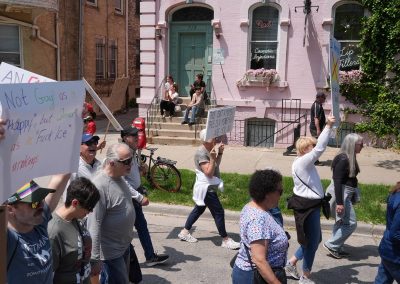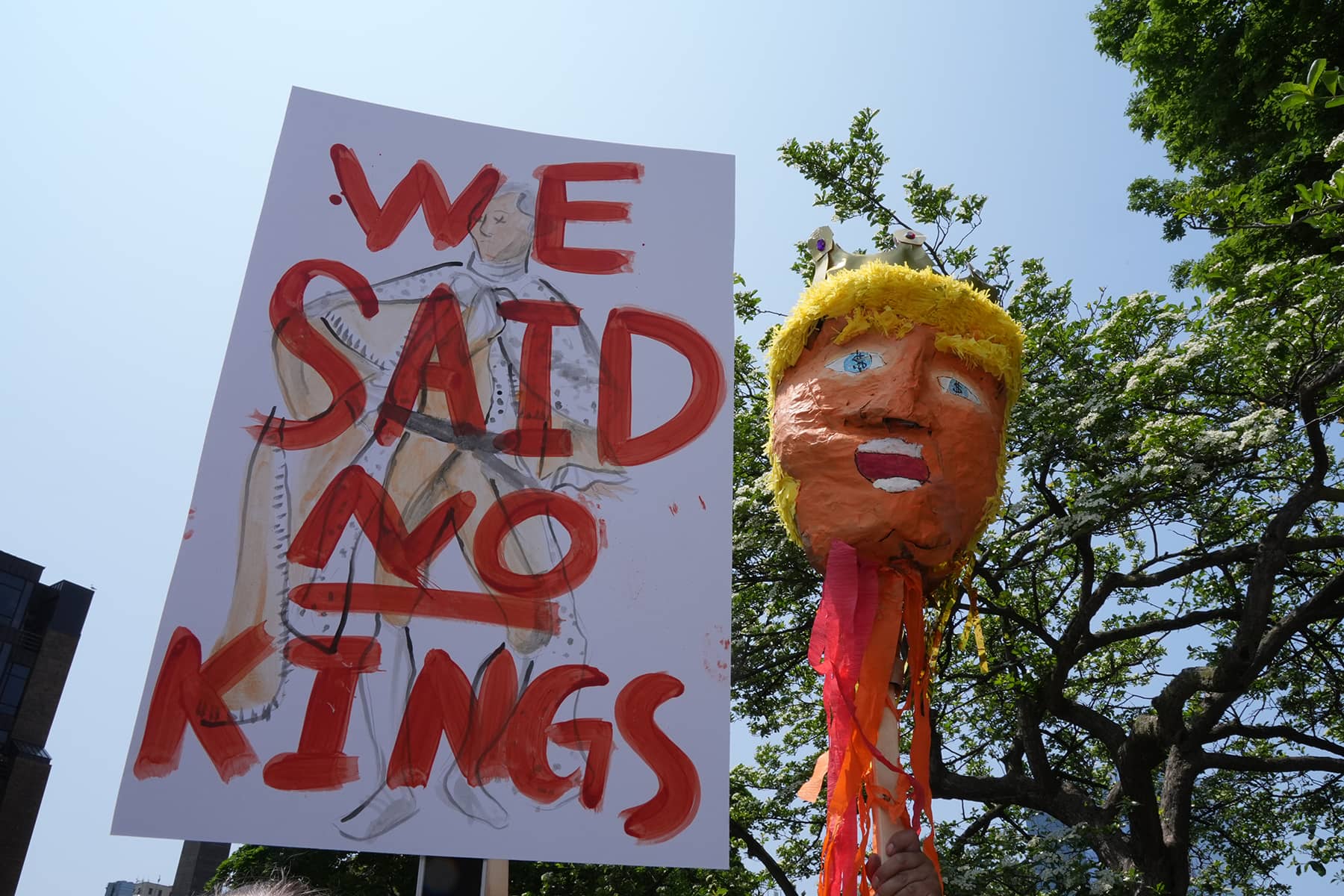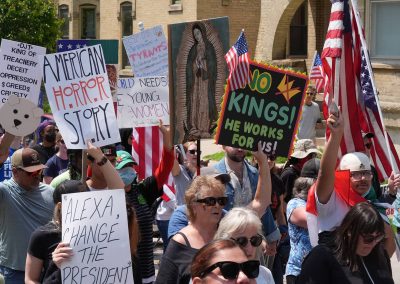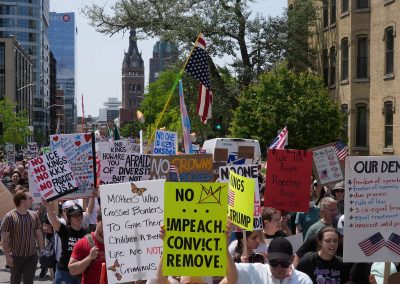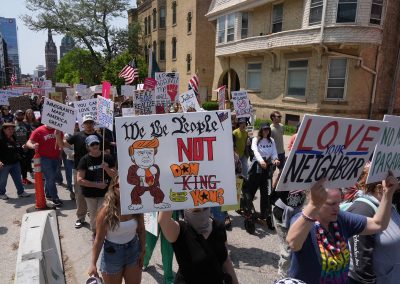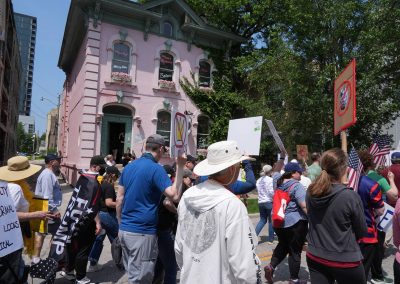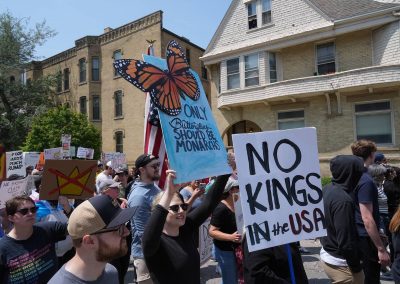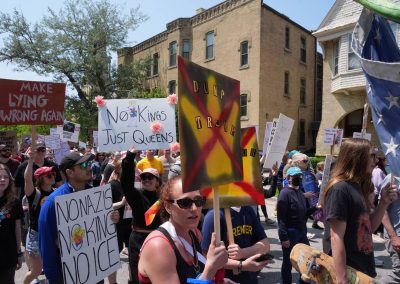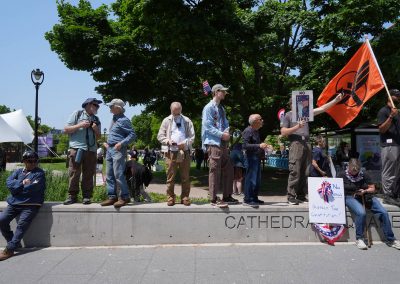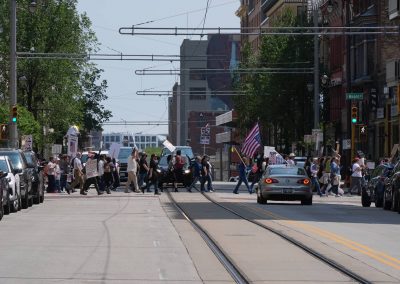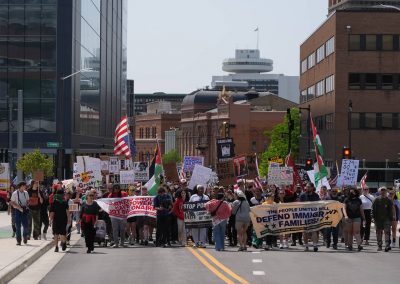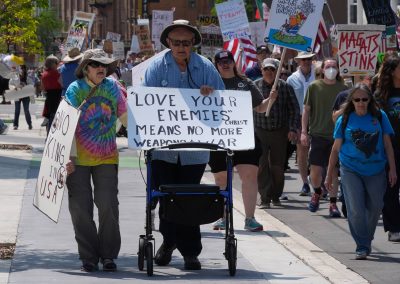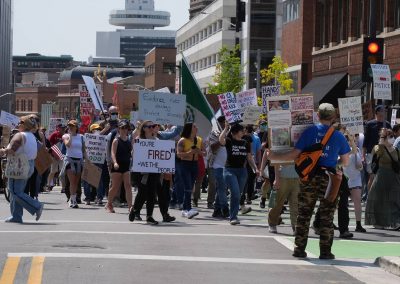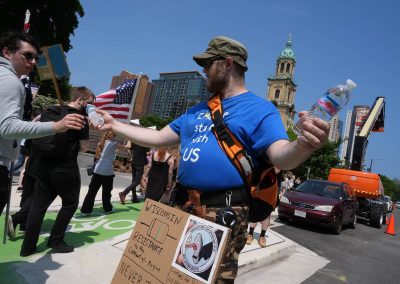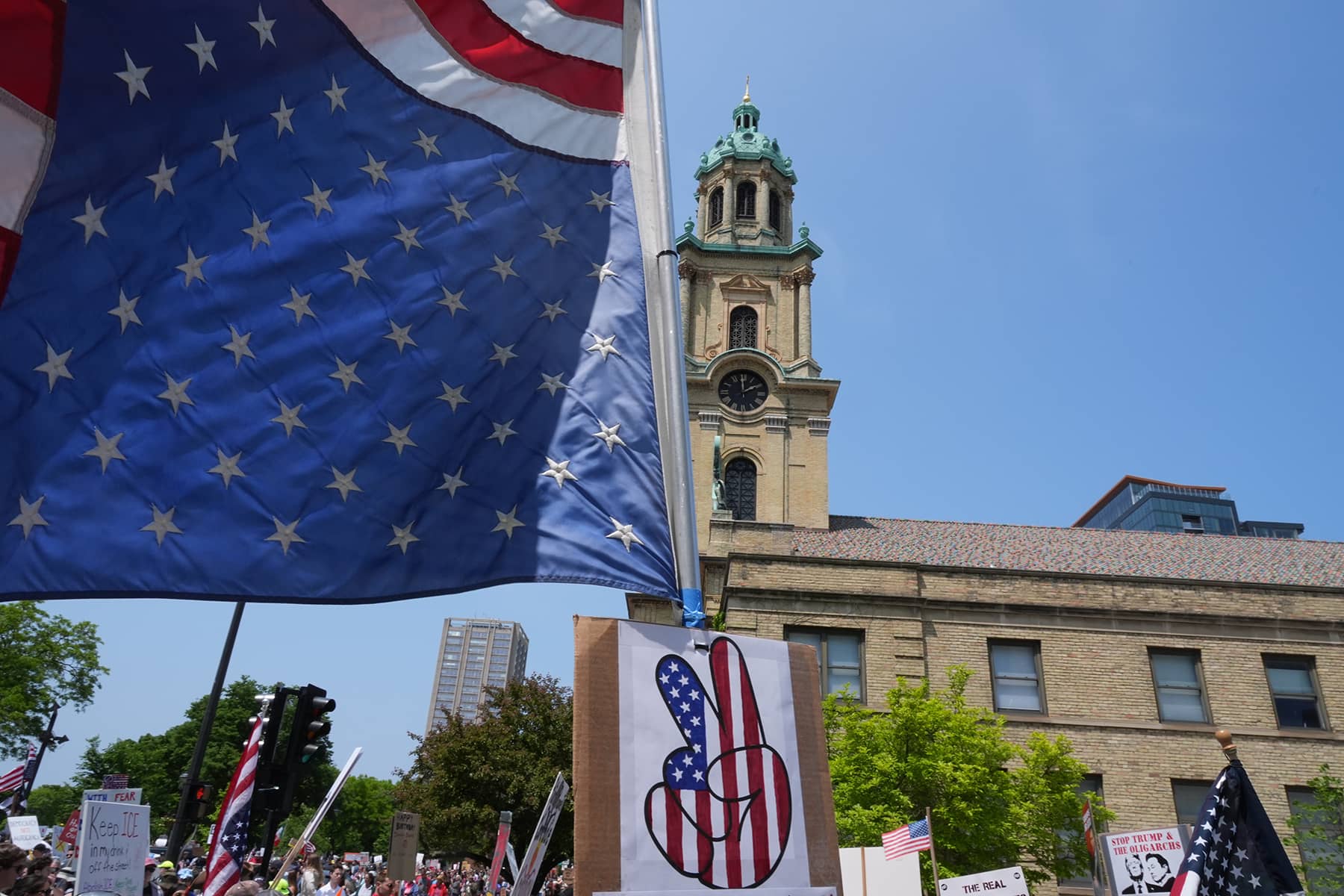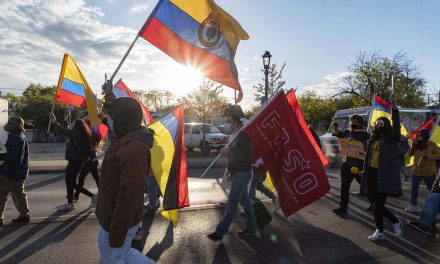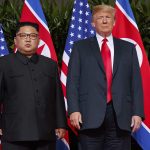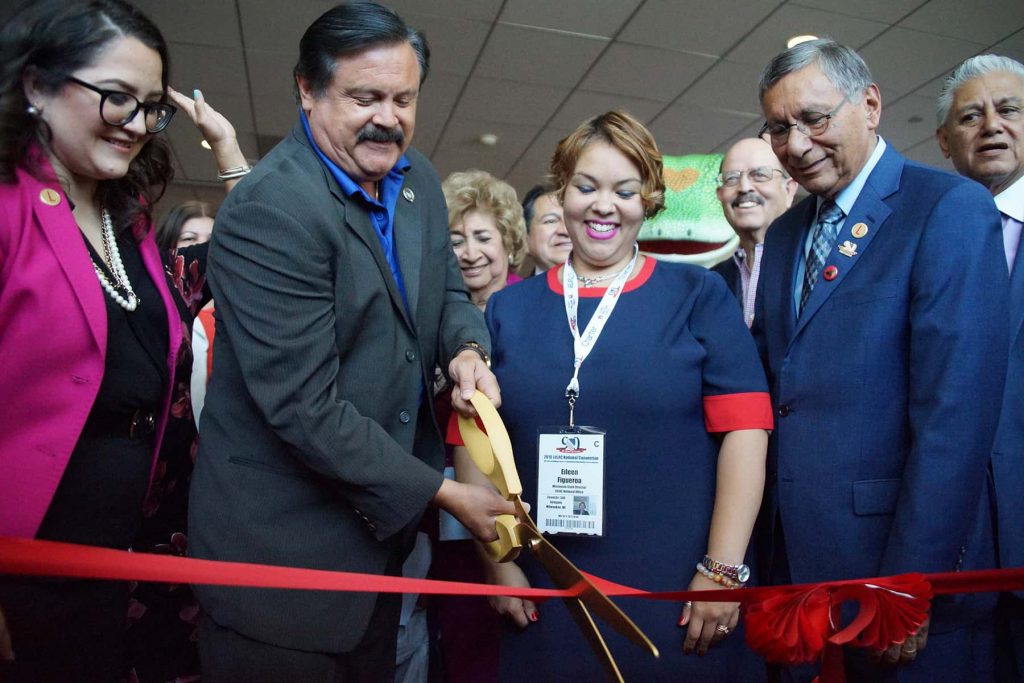
Thousands of demonstrators packed Cathedral Square Park in Milwaukee on June 14 in a powerful display against Donald Trump and his military-themed birthday celebration in Washington DC.
The protest, part of the nationwide “No Kings” movement, was one of the largest in Wisconsin, with organizers estimating more than 12,000 people in attendance and a one-mile march stretching through the downtown core and along the Lakefront.
While the crowd chanted, held signs, and packed tightly around the stage, spilling into nearby streets, organizers framed the protest as a local front in a national rebuke of what they described as authoritarian overreach.
“Locals in Milwaukee joined to amplify grassroots resistance and affirm that in America, we are citizens, not subjects,” said Andrew Guss, one of the No Kings organizers in Milwaukee. “Wisconsin is a critical battleground, and people here understand what’s at stake. This will be a day of unity, urgency, and action.”
June 14 marked both Flag Day and Trump’s 79th birthday. The White House demanded a military parade in the nation’s capital to commemorate the 250th anniversary of the U.S. Army. In response, organizers with 50501, shorthand for “50 protests, 50 states, 1 movement,” coordinated demonstrations in more than 1,500 cities nationwide, often working with regional partners and other pro-democracy groups.
Milwaukee’s protest mirrored the national scope while emphasizing local turnout and issues. Elderly residents, veterans, families with children, and college students filled Cathedral Square Park.
Many carried signs reading “No Kings. No Dictators,” “No Clown with a Crown,” or TACO themed exclamations, referring to “Trump Always Chickens Out,” which was a meme resulting from his failed tariff plans. Milwaukee law enforcement maintained a minimal presence.
Organizers said the purpose of the protests was to reject Trump’s use of military imagery and public funds to bolster his image. A national statement from the No Kings Coalition accused the Trump regime of turning Flag Day into “a self-aggrandizing celebration of power” and criticized the military parade’s estimated $45 million cost.
“He’s using our tax dollars to pay for his party. Trump’s birthday celebration is expected to cost millions, all while Republicans claim there’s no money for Social Security, SNAP, or Medicaid,” the statement read.
The event also included trained marshals and legal observers, part of a coordinated effort to ensure safety amid a tense national climate.
Similar scenes played out across the country as protesters gathered in cities and small towns, from coast to coast. In New York, Chicago, Denver, and Los Angeles, thousands marched shoulder-to-shoulder, chanting slogans, waving signs, and rallying under the unified “No Kings” banner. In Atlanta, crowds quickly exceeded the 5,000-person limit outside the Georgia Capitol, with spillover groups listening to speakers from behind barricades.
Organizers framed the day of action as a rejection of strongman politics and the erosion of democratic norms.
“This is bigger than political disagreement,” the coalition said in its national statement. “They’ve defied our courts, deported American citizens, disappeared people off the streets, and slashed our services. All while orchestrating a massive giveaway to their billionaire allies.”
In Milwaukee, those themes resonated. Speakers at the protest pointed to the Trump regime’s escalating immigration enforcement actions and its decision to deploy military personnel domestically.
They said that Trump and his Republican allies wanted to rule by force, not serve the people. They cited the federal response to protests in Los Angeles, where federal agents were illegally deployed by Trump, according to a federal judge’s ruling, to incite the situation and clash with demonstrators.
The June 14 marches came in the wake of those confrontations, which erupted after sweeping and arbitrary raids by Immigration and Customs Enforcement (ICE). Trump ordered Marines and National Guard units into Los Angeles. That show of force drew widespread condemnation and galvanized further turnout for the No Kings protests.
In addition to local concerns, demonstrators called attention to what they see as a coordinated national effort to suppress dissent. In some cities, protest organizers reported increased surveillance and what they described as “intimidation tactics,” including overhead drones and the visible presence of riot gear-equipped officers stationed blocks away from peaceful gatherings.
Despite scattered incidents, the demonstrations remained largely peaceful. Governors in several states had called for calm and, in some cases, authorized the deployment of the National Guard as a precautionary measure. No major incidents were reported in Wisconsin.
Across the U.S., the imagery was unified and deliberate. Protesters held upside-down American flags, a symbol of constitutional crisis, and in some cases raised Mexican flags to show solidarity with immigrant communities. In Washington DC, a caricatured puppet of Trump, wearing a crown and sitting on a golden toilet, was wheeled through the streets while demonstrators chanted, “Trump must go now.”
As the military parade in Washington DC unfolded, video circulated online showing Trump sleeping off during part of the military ceremony. Organizers quickly seized on the moment with printed protest signs that read “Okay Gramps Time for Bed.”
Many speakers at the Milwaukee event pointed to what they described as a broader effort by Republican leadership to entrench minority rule and undermine democratic checks. Some referred to recent court decisions, voting restrictions, and efforts to dismantle regulatory oversight as evidence of creeping authoritarianism disguised as populist governance.
In Wisconsin, where statewide elections often hinge on razor-thin margins, organizers said the June 14 turnout represented a deep and growing concern among voters. The No Kings coalition said it plans further actions with a focus on voter education, local organizing, and continued mass mobilization.
The day ended without incident, and with a clear message. In Milwaukee and across the country, June 14 marked a day of opposition to an autocratic spectacle. It was a public reckoning against a man trying to claim a throne, and a reminder that the power in America still belongs to the people.
© Photo
Lee Matz


